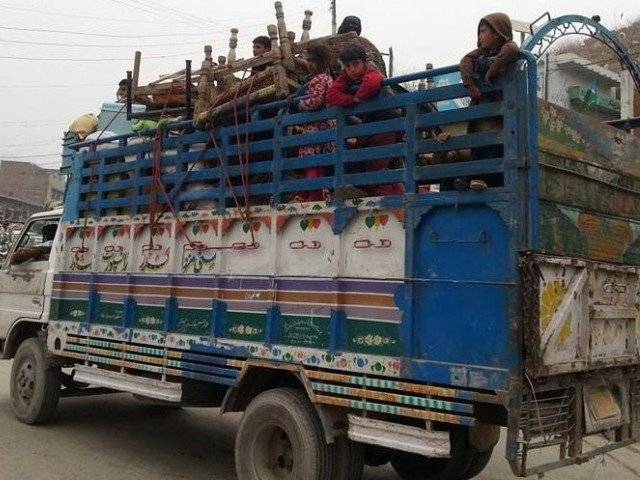According to police, around 11,000 Afghans residing illegally in Azad Jammu and Kashmir (AJK) will be expelled in accordance with the National Action Plan (NAP). Additionally, the AJK government has banned 63 terrorist organisations including al-Qaeda, Tehreek-e-Taliban Pakistan (TTP), Sipah-e-Sahaba Pakistan (SSP), Lashkar-e-Jhangvi (LeJ) and Lashkar-e-Tayyaba (LeT). Although the Hafiz Saeed-led Jamat-ud-Dawa (JuD) has not been outlawed, but its activities will be monitored. Why does the AJK government feel the need to observe the JuD when the organisation operates freely in Punjab and almost everywhere else in Pakistan? Do they know something that the rest of the country doesn’t?
Banning organisations has proven quite meaningless in the past as they have continued to operate regardless of their legal status and in many instances, enhanced their organisational structures and operational capabilities. Some have only had to go through the trouble of changing their names and now operate openly such as the Ahle Sunnat Wal Jamat (ASWJ) formerly known as SSP. What is required at this point in time is a proactive, aggressive approach towards these organisations. They run seminaries, conduct fundraisers and campaign relentlessly to spread their ideology and recruit members. To make matters worse, some of them are even given space on mainstream media, which they either use to spread hate or to obfuscate issues in order to prevent action. In many cases, the police are fully aware of the presence of extremist elements in their respective areas as well as their activities but no action is taken until something terrible happens. The AJK government can ban all the organisations it wants, but it would need to do a lot more than just that if it means business. Accommodating jihadis and fighting terrorists simultaneously can be quite tricky, as Pakistan has learnt.
As far as the Afghan refugees are concerned, it is true that the Peshawar incident has only worsened the prejudice against them despite the fact that most of those arrested in connection with the attack are Pakistanis. The government must take steps to ensure that illegal refugees are either expatriated or registered so they can be sent back to Afghanistan later. They should also be given the opportunity to apply for this country’s citizenship, and every case ought to be considered absent prejudice or favouritism. It is important to remember the dire circumstances that compelled them to leave their homes and come to this country. Pakistan’s terrorism problem is a logical consequence of Pakistan’s misguided policies, not Afghanistan’s. While the state attempts to rectify it, it would do well to reserve contempt and punishment for those truly deserving of it instead of those who are vulnerable and largely blameless.
Friday, April 19, 2024
NAP In AJK

King Charles's cancer ‘eating him alive,' monarch unable to perform duties: Insider
1:02 AM | April 19, 2024
Mehwish Hayat says she would like to work with Aamir Khan
9:59 PM | April 18, 2024
What caused record-breaking rainfall in UAE?
9:58 PM | April 18, 2024
Donald Trump discusses Ukraine, Middle East, NATO with Polish President Duda
9:57 PM | April 18, 2024
'That'll be awesome,' Rohit Sharma on idea of Pakistan vs India Test series
9:17 PM | April 18, 2024
Hepatitis Challenge
April 18, 2024
IMF Predictions
April 18, 2024
Wheat War
April 18, 2024
Rail Revival
April 17, 2024
Addressing Climate Change
April 17, 2024
Justice denied
April 18, 2024
AI dilemmas unveiled
April 18, 2024
Tax tangle
April 18, 2024
Workforce inequality
April 17, 2024
New partnerships
April 17, 2024
ePaper - Nawaiwaqt
Advertisement
Nawaiwaqt Group | Copyright © 2024





